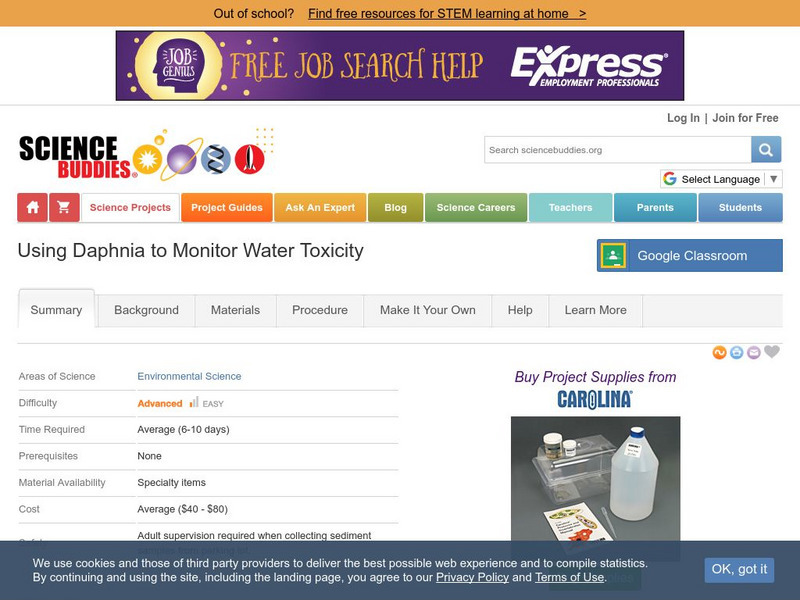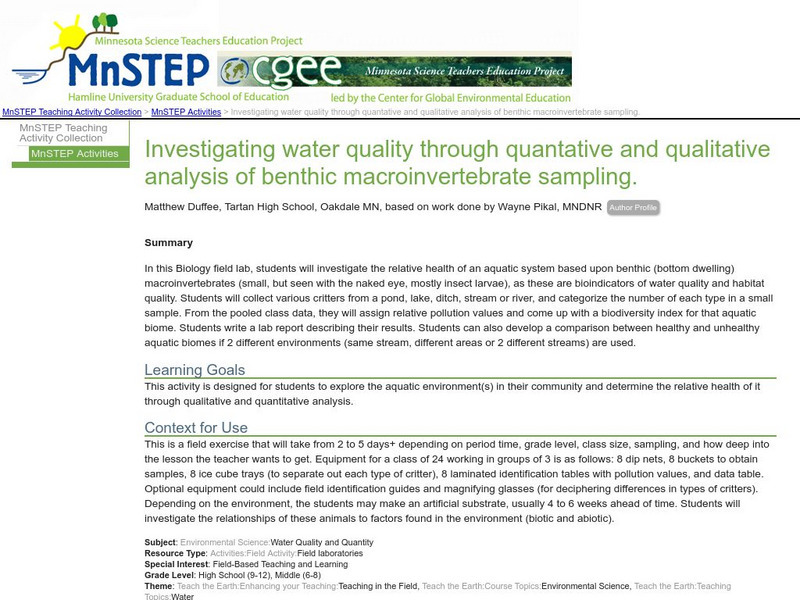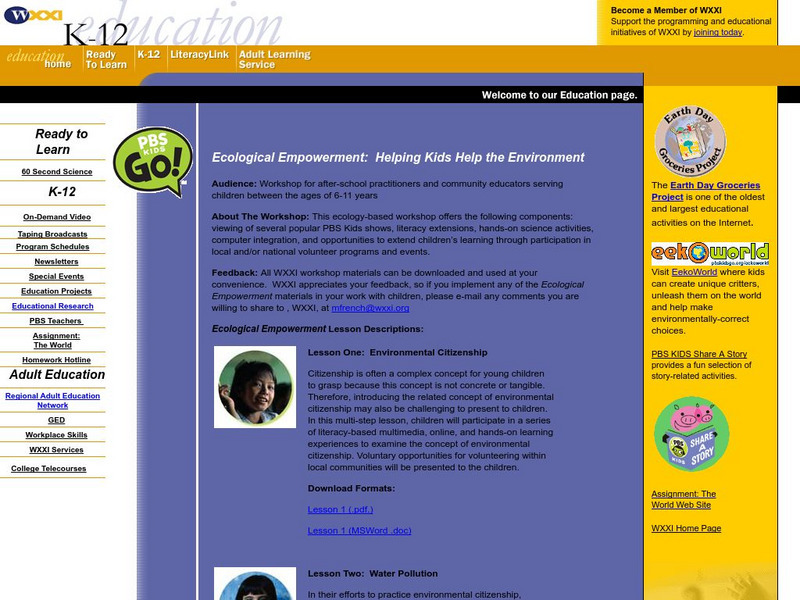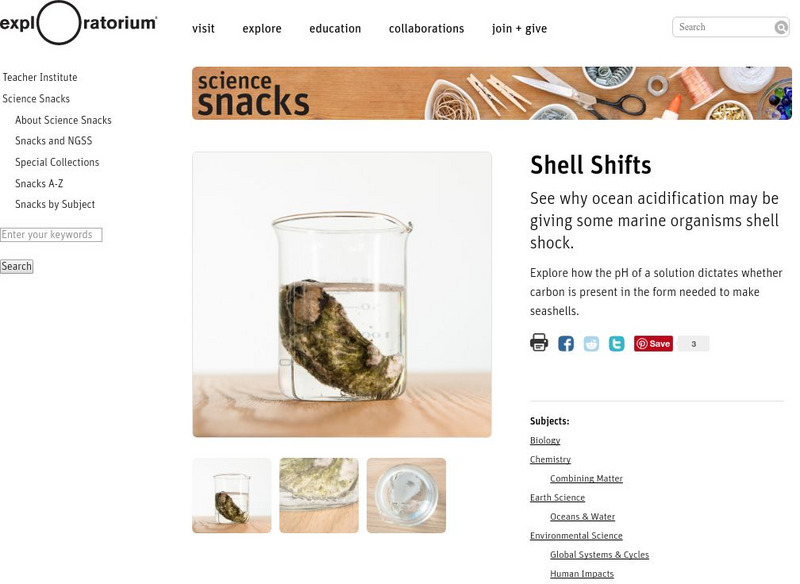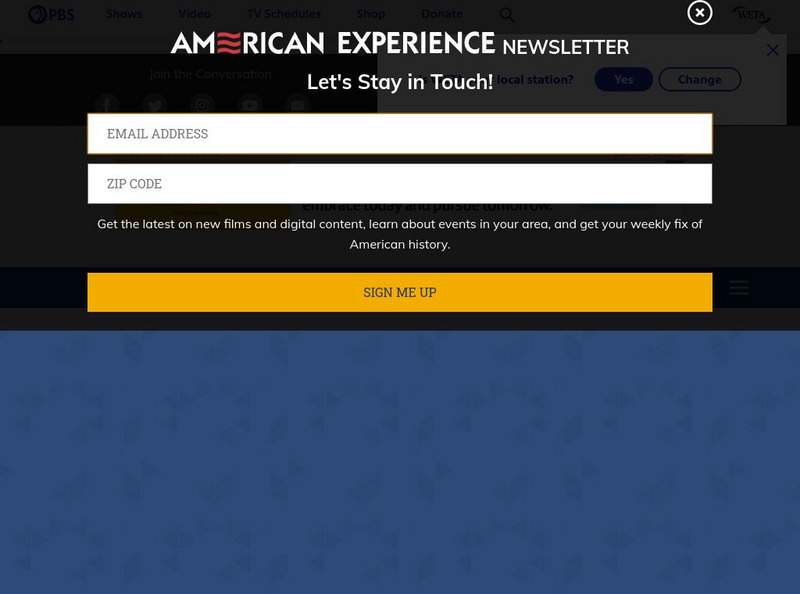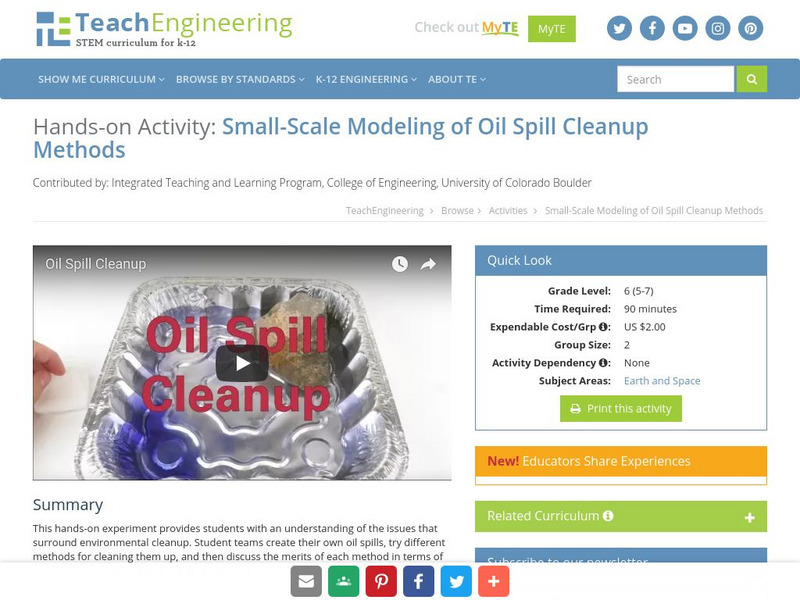Curated OER
Scales, Scutes, and Skins
Students identify the various adaptations of reptiles and amphibians. After distinguishing between reptiles and amphibians, students discuss the ways in which their adaptations aid in their survival. They participate in a hands on...
Curated OER
Rainbow Milk
Students complete activities to learn about rainbows and the importance of dairy in their diet. In this sense and diet lesson, students discuss rainbow colors, the importance of sight, and the importance of dairy in a healthy diet....
Curated OER
Community and Ecosystems
Students complete a unit of lessons on ecosystems. They participate in online activities, create a diorama, write journal entries, and develop a Hyperstudio multimedia project on a selected ecosystem.
Curated OER
Marine Communities
Learners view a video and then complete lab exercises to help them explain marine communities and animals in them.
Science Buddies
Science Buddies: Learn How to Disinfect Contaminated Water
Clean water is not a given everywhere in the world. In this science fair project, students will investigate whether sunlight could be used to disinfect contaminated water. The Science Buddies project ideas are set up consistently...
University of Missouri
Microbes in Action: Classroom Activities: Water Quality Testing [Pdf]
In this experiment, students will test the quality of a water sample by observing the number of coliform bacteria. Coliform bacteria are found in human intestines and a large amount can indicate water contamination. Lesson plan gives a...
Science Buddies
Science Buddies: Using Daphnia to Monitor Water Toxicity
In a bioassay, a living organism serves as a detector for toxins-the same way canaries were used in coal mines to detect invisible toxic gases. In this project, water fleas (Daphnia magna), a freshwater crustacean, are used in a bioassay...
PBS
Pbs Learning Media: River Rewilding: Advanced Water Quality
For this unit, students will try to improve stream quality and reduce human impacts by taking action.This Advanced Water Quality unit is packaged into three smaller parts: Part 1: Stream Habitat Assessment; Part 2: Macroinvertebrate...
PBS
Pbs: Water Quality Control Center: Rough Science: Rough Science Adventure
A team from the PBS show Rough Science Adventure have produced tests to determine attributes of water. Simple experiment guides will investigate pollution, mineral content, whether there are organisms living in the water, how to create a...
American Geosciences Institute
American Geosciences Institute: Earth Science Week: Hands on Experiments to Test for Acid Mine Drainage
Fifteen short experiments which test acid mine damage to the streams, rivers, and creek ecosystems surrounding it.
Science Education Resource Center at Carleton College
Serc: Lab 7: Nitrates and Phosphates and Algae, Oh My!
A lab experiment, in a series of experiments, that investigates fisheries. In this lab, students test the effects of fertilizers and other pollutants on a model ecosystem. Students also examine 2 years of ocean color (chlorophyll...
Michigan Reach Out
Reach Out Michigan!: Contaminated Drinking Water
This site is provided for by Reach Out Michigan! Use the site to learn if our eyes and taste buds can detect contaminated drinking water by doing a simple experiment.
Science Buddies
Science Buddies: Heavy Metals and Aquatic Environments
You might know that lead can be toxic, and that you can get lead poisoning from eating or inhaling old paint dust. Lead is called a heavy metal, and there are other sources of heavy metals that can be toxic, too. Silver, copper, mercury,...
Michigan Reach Out
Ocean in a Bottle
At this site pupils will discover what happens when oil or liquid detergent are dumped into our earth's water supply.
SEDL
Oceans [Pdf]
This large PDF file integrates math, science, and language into several lessons about characteristics of the oceans. Topics include ocean currents, tides, density, marine life, and pollution.
Science Education Resource Center at Carleton College
Serc: Investigating Water Quality Through Quantative and Qualitative Analysis
By looking at the bottom dwelling macroinvertebrates, students will investigate water quality and habitat quality in this field lab. Students will record the number of creatures found at the bottom of a pond, lake, ditch, stream or river...
PBS
Pbs Teachers: Helping Kids Help the Environment
Define and explore the concept of environmental citizenship through a series of literacy-based multimedia, online and hands-on learning experiences. Discover how responsible citizens can help protect their local communities by...
US Environmental Protection Agency
Epa: A Kids Adventure Story
This cartoon describes what the EPA's Superfund is and how water can become polluted. A lab experiment with Q&A is included.
NOAA
Noaa: How Toxic Is It? [Pdf]
Experiment to find out how toxic various water samples are near you.
Exploratorium
Exploratorium: Science Snacks: Shell Shifts
Investigate the damage that ocean acidification does to the shells of sea creatures.
PBS
Pbs: American Experience: Earth Days: Timeline:the Modern Environmental Movement
Trace the advance of the environmental movement from 1948 through the 1980s. Read about the legislation promoting a healthy environment passed under both Democratic and Republican presidents.
TeachEngineering
Teach Engineering: Oil Spill Cleanup
This hands-on experiment will provide students with an understanding of the issues that surround environmental cleanup. Students will create their own oil spill, try different methods for cleaning it up, and then discuss the merits of...
TeachEngineering
Teach Engineering: Oil on the Ocean
Students learn about oil spills and their environmental and economic effects. They experience the steps of the engineering design process as they brainstorm potential methods for oil spill clean-up, and then design, build, and re-design...




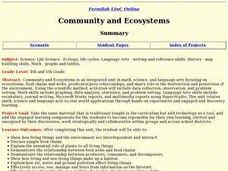

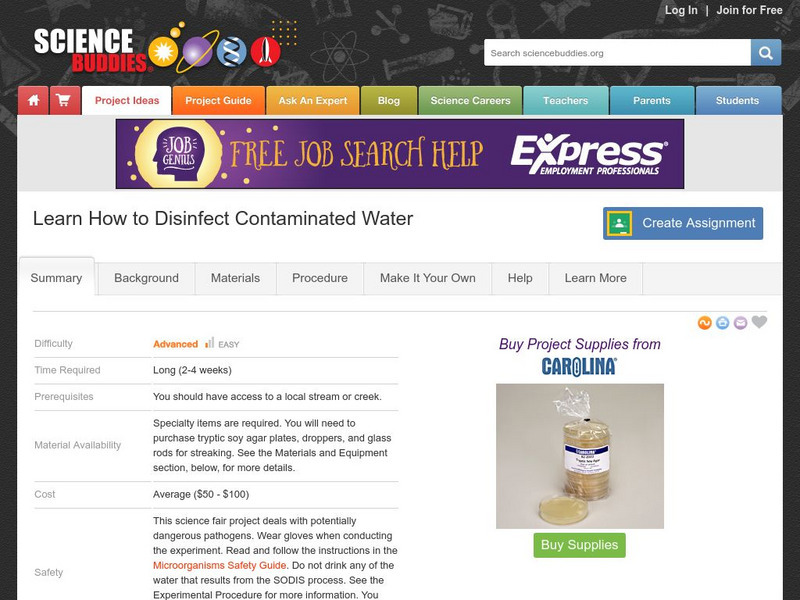
![Microbes in Action: Classroom Activities: Water Quality Testing [Pdf] Activity Microbes in Action: Classroom Activities: Water Quality Testing [Pdf] Activity](https://d15y2dacu3jp90.cloudfront.net/images/attachment_defaults/resource/large/FPO-knovation.png)
